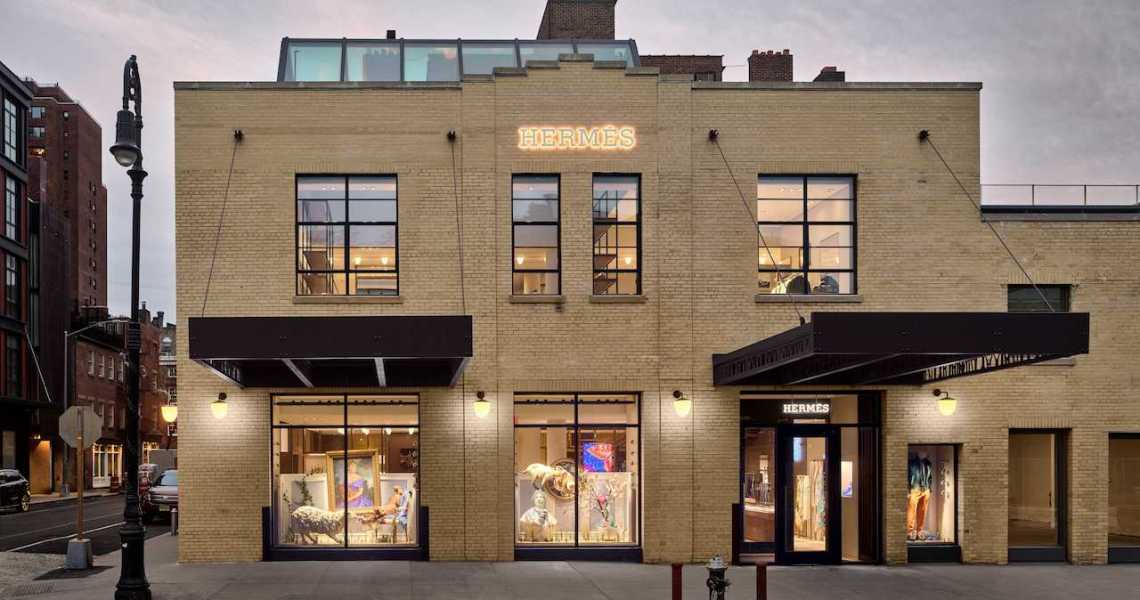Last week, Glossy wrapped up a series of stories on the growing threat of a recession. Elsewhere, competition among fashion brands in China is growing, Hermès opens its first New York City store outside of Manhattan, Balenciaga’s couture made headlines, and ABG dropped a lawsuit against one of its own tech partners. Don’t forget to subscribe to the Glossy Podcast to hear the Week in Review episodes with Glossy’s editor-in-chief Jill Manoff and myself, as well as Jill’s conversations with industry insiders every Wednesday. –Danny Parisi, sr. fashion reporter
Riding out a recession
Over the last two weeks, we’ve run a series of stories looking at how fashion and beauty companies will be impacted by an oncoming recession.
Brands are scaling back how much inventory they’re buying to ensure they’re not stuck sitting on excess inventory like they were at the beginning of the pandemic. But that inclination is complicated by the fact that orders are taking longer due to supply chain delays, leaving brands with tough decisions to make on how much to order and when.
Shipping costs are becoming exorbitant, leading brands to look for manufacturing partners closer to home. Real estate prices and the associated costs of running a store keep going up, pushing brands to rethink their store strategies. And a tight capital market means investors only want to give money to safe bets and proven business models, leaving smaller or more experimental brands with a harder time getting funds.
Check out our new Recession section on the Glossy homepage to see our recent stories.
Homegrown brands continue to dominate China
Ad position: web_incontent_pos1
Last week, Zara parent Inditex pulled three of its brands — Bershka, Pull & Bear and Stradivarius — from e-commerce operations in China, joining a growing list of brands that have exited the market.
It’s not that China isn’t still attractive for fashion. Apparel sales in China are still growing at around 6% annually. But the market has become much more competitive, particularly for non-Chinese brands that now have to compete with both Chinese brands and a bevy of foreign brands.
Fast-fashion brands, in particular, face an uphill battle in China, having to compete with Chinese giants like Shein along with more niche Chinese brands like Peacebird. Japanese department store Isetan also left China this week after facing stiff competition from the homegrown department store SND, which doubled its sales in 2021.
Hermés moves to Brooklyn
The French luxury brand Hermés is opening a long-term pop-up in Williamsburg, Brooklyn. A temporary location on North Sixth Street will open next year while a permanent location on the same street is under construction. The plan, according to WWD, is for the permanent store to open in 2026.
Ad position: web_incontent_pos2
While Hermés has three locations in Manhattan, this will be the brand’s first physical presence in another borough of New York City near other stores like Nike.
Balenciaga pulls all the stops in Paris
Balenciaga shows under mononymous designer Demna have routinely been among the most high-profile and media-attracting events in fashion. Standout moments include Demna’s poignant messaging at the brand’s fall 2022 show just after the start of the invasion of Ukraine and the spring 2022 show held on the floor of the New York Stock Exchange.
Balenciaga’s couture show in Paris on Wednesday was no different: Bella Hadid, Kim Kardashian, Dua Lipa, Naomi Campbell and Nicole Kidman walked the show, and a bag that doubles as a speaker created in collaboration with the electronics company Bang & Olufsen made an appearance.
Authentic Brands Group drops lawsuit against Bolt
ABG, the holding company that has snapped up dozens of apparel brands including Brooks Brothers, Forever 21 and Reebok, filed a lawsuit in January against the one-click checkout company Bolt. At the time, the lawsuit alleged that Bolt had failed to deliver the technology ABG had hired it to offer, leading to millions of dollars in lost sales. In the same month, former Bolt CEO Ryan Breslow stepped down.
This week, ABG said it’s dropping the lawsuit against Bolt and will continue to use the company as its checkout tech provider. ABG will also become a shareholder in the company. ABG has become a major force in fashion since the pandemic began, acquiring and rehabilitating a number of brands from the brink of bankruptcy. Under its watch, brands like Aeropostale have gone from bankrupt and irrelevant to trending on TikTok.




